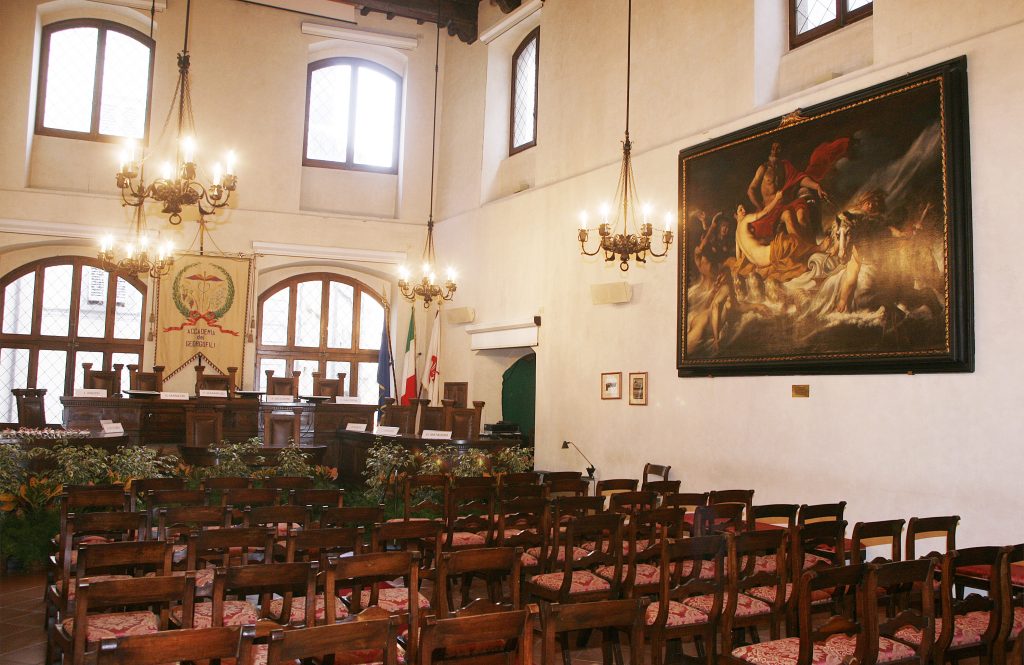
Italy – Accademia dei Georgofili
02 11 2016
The Georgofili, ever-faithful to their historical role, continued to look towards the future and to turn their attention and commitment, but this time using updated technology, to the scientific, technical, economic and social problems which have spurred the evolution of the world of agriculture and have highlighted the new emergencies linked to the protection of the environment.
The Accademia has entrusted to its own Acts the task of spreading knowledge and maintaining its research patrimony, as well as the experimentation and innovation promoted by Georgofili, not only in the field of agriculture, but also in areas related to civilization, politics and economics.
The government of the Grand Duchy of Lorraine quickly granted the Accademia official recognition as a Public Institution (the first of its kind in the world), and entrusted it with many important tasks.
The motto of the Accademia Prosperitati publicae augendae (to increase the wealth of the State) highlights how the activities of the Georgofili have always been in the Public interest.
The activities, the study and the research of the Georgofili were always very articulate during the first century of its foundation, and were closely associated with the Reforms of Leopold. In the light of scientific and technological progress, the commitment of the Accademia in the field of education (with the schools for “Reciprocal Instruction” as well as the Istituto di Meleto), in addition to the enormous work done in the fields of agriculture, spread by the “Acts” and by the “Giornale agrario toscano” (the Tuscan Agricultural Journal), constituted the main elements for the formation and training of a new agricultural class. Since the 1791, in order to stimulate and spread knowledge about better techniques, the Georgofili decided to publish their “efforts no longer in form of separate pamphlets but in series, as done by the most famous Societies in Europe”. From the very beginning, Georgofili expressed the intention of preserving pages and documents and putting them at the disposal of who so ever wishes to consult them.
At the beginning of the 19th century, the fame and authority of the Accademia were such as to induce Napoleon himself to commission the study of the project on the reform of the French Rural Codex.
With the unification of Italy, the Accademia dei Georgofili, which was already renowned beyond the confines of Tuscany, also assumed a national dimension. In 1897 it became recognized as a State Institution.
Some of the most important activities undertaken by the Accademia during the 20th century offer an important overview of the rapid scientific and technological progress wich characterize the century.
The Georgofili, ever-faithful to their historical role, continued to look towards the future and to turn their attention and commitment, but this time using updated technology, to the scientific, technical, economic and social problems which have spurred the evolution of the world of agriculture and have highlighted the new emergencies linked to the protection of the environment.
The Accademia has entrusted to its own Acts the task of spreading knowledge and maintaining its research patrimony, as well as the experimentation and innovation promoted by Georgofili, not only in the field of agriculture, but also in areas related to civilization, politics and economics.
At present, the Library has a total of approximately 90.000 volumes include monographs, leaflets and periodicals; there are two incunabulum and 115 books from the 16th century. The Library has both a hard copy catalogue and one that can be consulted on line.
The Historical Archives of the Georgofili, dating from 1753 (the year of its foundation) to 1911, preserve in excess of some 12.000 hand-written documents. In addition to the memoires sent to the Accademia and exhibited during the Public Assemblies, there are also letters, essays and documentation related to the opinions requested on the most diverse topics. The printed Inventory of the Archives was published in Florence in 1970-1977. The modern section of the Historical Archives contains all the correspondence, the minutes of the meetings, the memoires and the acts produced by the Accademia during the first half of the 20th century (approximately 15.000 documents). The Accademia dei Georgofili has also a Photographic Archives, an important collection specialized in topics relating to agriculture, which contains approximately 110.000 photographs (colour, as well as black and white) slides, negatives, drawings, etc.
06/30/2016
